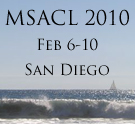| 8. Identification and Labeling Strategy for the Quantification of Acylcarnitines in Urine and Plasma
|
| Mon 4:48 PM - PosterSplash Track 1 |
Azeret Zuniga
University of Alberta |
|
Azeret Zuniga, Kevin Guo, Liang Li.
Chemistry Department, University of Alberta |
|
|
Acylcarnitines have become metabolites of interest in the clinical laboratory since their discovery as biomarkers for inborn errors of metabolism. The successful implementation of MS/MS assays for the screening of these diseases has further increased their popularity. More recently, these compounds have been found to be up or down-regulated in patients suffering from a wide range of other diseases such as type II diabetes, pre-eclampsia, renal tubular disease, sepsis and some cases of oxidative stress. The objective of this work is to show that obtaining a comprehensive and quantitative acylcarnitine profile may provide valuable diagnostic information of a particular disorder.
Acylcarnitine standards were used as substrates for incubation with human liver microsomes. The MS/MS fragmentation patterns of the phase I metabolites produced from this incubation process were used for the identification of the same compounds in human urine and plasma. Analyte extraction was performed on microsomal incubates, urine and plasma samples using cation-exchange solid phase extraction. A 30-minute chromatographic separation was done on a Waters ACQUITY UPLC system using a BEH C18 2.1 X 50 mm, 1.7 micron column. Information-dependent acquisitions were performed using Multiple Reaction Monitoring (MRM) as a survey scan on an AB/Sciex 4000 Q TRAP system.
A patent-pending quantification strategy was developed in-house for the labeling of carboxylic acid derivatives. The hydrophobicity of the added moiety improves the compounds’ electrospray response and also enhances the chromatographic separation of structural isomers. The tag contains two carbon 13 isotopes, giving rise to a two Dalton mass difference compared to the light-labeled isotopomer.
Using this analytical platform, a total of 362 acylcarnitine species have been identified in the urine and 169 in the plasma of healthy individuals. The optimization of our quantitative strategy to acylcarnitine species in urine and plasma is currently underway. |
|
|
| Email: azeret@ualberta.ca |



